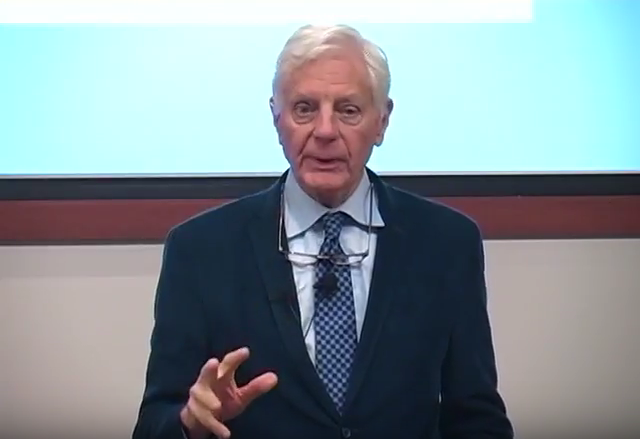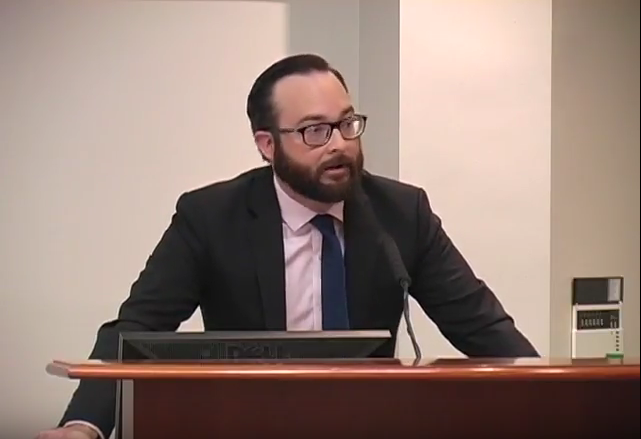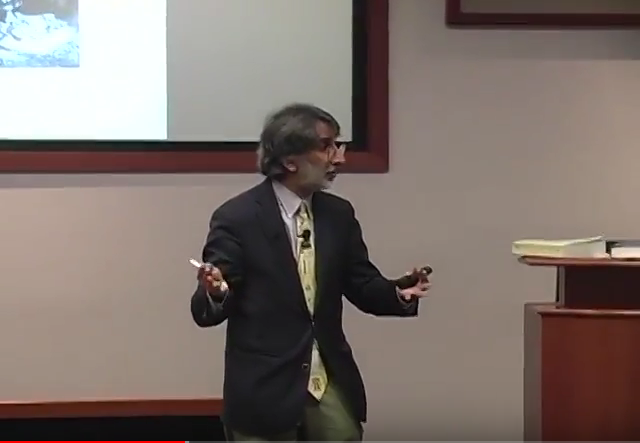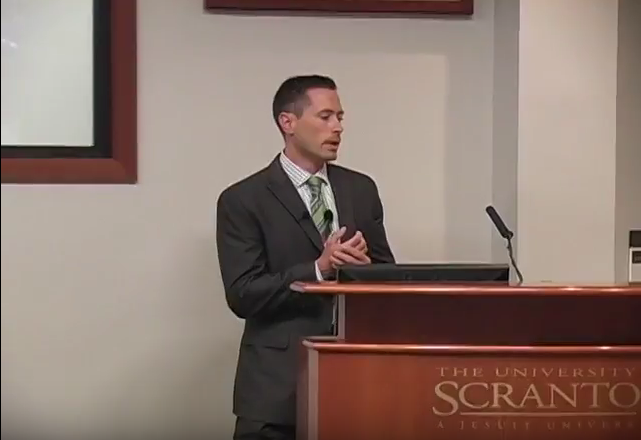Schemel Forum Courses Planned for Spring
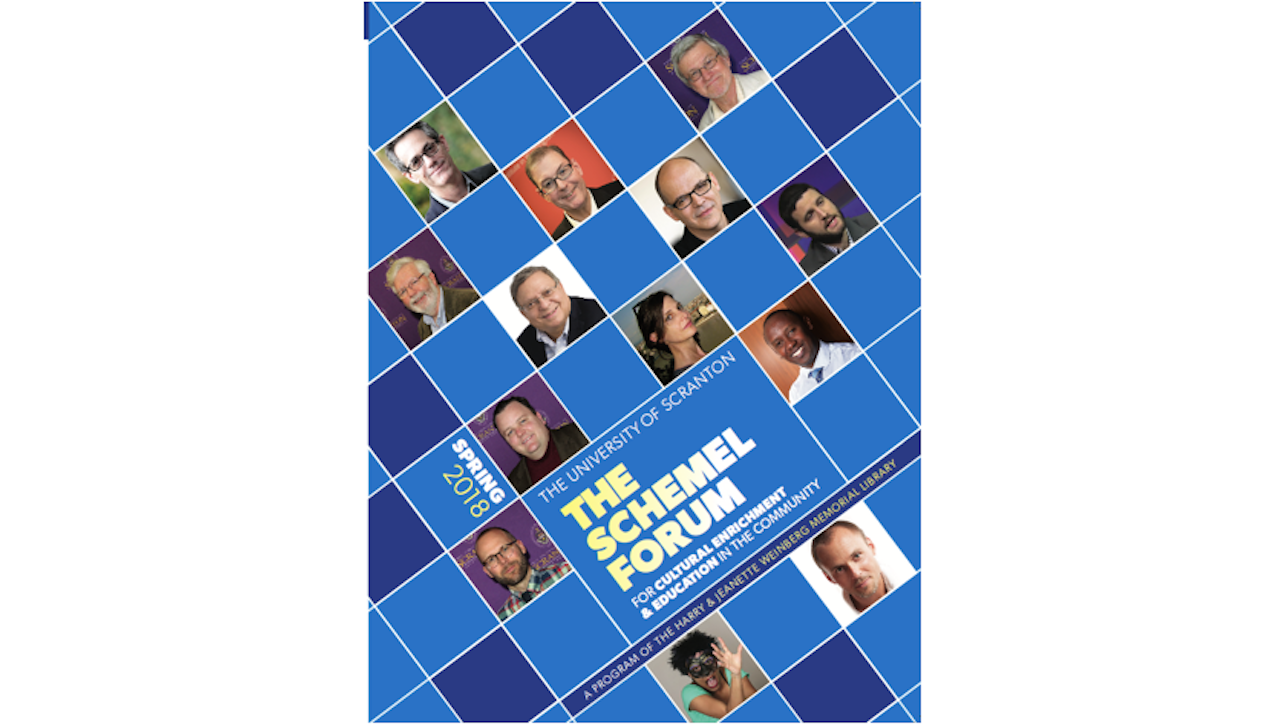
During the spring semester, University of Scranton professors will trace a European dynasty that impacted world events for four centuries; a decade of lasting importance in America; and the potential of artificial intelligence to change life as we know it. These Schemel Forum evening courses will be taught in six weekly sessions from 6 to 7:15 p.m. in the Weinberg Memorial Library on campus. Beverages and light snacks will also be offered during the courses.
Andrew La Zella, Ph.D., associate professor of philosophy, will present “Artificial Intelligence: Science Fiction or Science Fact?” The course will examine the theory and practice of artificial intelligence (AI) and ask the central question: Can human mental states (e.g. perceptions, beliefs, desires, fears, etc.) be replicated in non-biological systems?
Currently engaged in multidisciplinary research into AI, Dr. LaZella and class participants will attempt to determine whether AI has reached (or is reaching) firm scientific footing or remains stalled as mere science fiction. He will present the long-standing philosophical debate about what constitutes intelligence; trace the evolution of AI in the 20th and 21st centuries, when programmers went from giving machines rigid sets of rules to providing looser parameters that potentially could enable them to learn and adapt; and delve into AI’s ethical and legal aspects, with examples from literature and film. The course will meet on the following Tuesdays: February 13, 20 and 27; and March 6, 20 and 27.
“The Sixties: Making Sense of a Formative Era” will be taught by David Friedrichs, distinguished professor of sociology, criminal justice and criminology, and University faculty members from other academic disciplines. “A half-century after 1968, a dramatic year during the era of the Sixties, it seems worthwhile to revisit this era (1964-1974), which many Schemel Forum class members have lived through,” said professor Friedrichs. “Much that has since transpired is rooted in this era or represents a strong reaction against its core themes and developments.”
The course will explore the key political dimensions of the Sixties, from Kennedy’s New Frontier and assassination to Nixon’s Watergate and resignation; the Civil Rights, Women’s Rights and Gay Rights movements; the Vietnam War and the anti-war movement; core cultural and spiritual dimensions of the era, including the counterculture, the proliferation of illicit drugs, the sexual revolution and Woodstock; and urban riots and a rising crime rate. Concluding with the meaning of the Sixties in the Trump era, the course will meet on the following Wednesdays: March 7, 21 and 28; and April 4, 11 and 18.
Sean Brennan, Ph.D., associate professor of history, will chronicle “The Habsburg Monarchy 1519-1918.” Dr. Brennan asserts that few dynasties had a greater impact on European history than the Habsburgs. They played a central role in the Reformation, the Thirty Years’ War, the Enlightenment, the French Revolution, the Industrial Revolution and World War I. This course will examine the dynasty’s pivotal monarchs: “the most powerful man in the world,” Charles V; the defender of Catholicism, Ferdinand II; the enlightened despots, Maria Theresa and Joseph II; the archenemy of revolution, Franz II; and the “eternal Kaiser,” Franz Joseph. Dr. Brennan will conclude by examining the end of Habsburg rule a century ago during the reign of Karl II and its afterlife under his son Otto. The course will meet on the following Mondays: March 19 and 26; and April 9, 16, 23 and 30.
Area residents can attend any course for $60 per person or $100 per couple; Schemel Forum members may attend any or all courses free. Space is limited and registrations are accepted on a first-come, first-served basis.
To register, contact Alicen Morrison, Schemel Forum assistant, at 570-941-6206 or alicen.morrison@scranton.edu. For more information on Schemel Forum programs and memberships, contact Sondra Myers, Schemel Forum director, at 570-941-4089 or sondra.myers@scranton.edu.
The Schemel Forum’s University for a Day” provides area residents a sampling of the courses, lectures and other programs offered to area residents throughout the year. The Schemel Forum is a program of participatory learning experiences aimed at cultivating the intellect and the imagination through study and discussion of classical texts and current policies, from the arts, history and philosophy to technology and theology. Founded in 2006 through generous gifts to the Rev. George Schemel, S.J., Fund, created by friends of the late Father Schemel in his loving memory, and spearheaded by Harmar Brereton, M.D, the forum has grown from a handful of informal lectures to a comprehensive enrichment program of study, dialogue, performances and special events. Through the forum the University offers to the community its most valuable assets – its faculty members and the wealth of knowledge that they possess.


